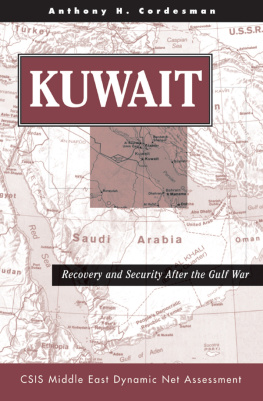First published in 1972 by George Allen & Unwin Ltd
This edition first published in 2018
by Routledge
2 Park Square, Milton Park, Abingdon, Oxon OX14 4RN
and by Routledge
711 Third Avenue, New York, NY 10017
Routledge is an imprint of the Taylor & Francis Group, an informa business
1972 George Allen & Unwin Ltd
All rights reserved. No part of this book may be reprinted or reproduced or utilised in any form or by any electronic, mechanical, or other means, now known or hereafter invented, including photocopying and recording, or in any information storage or retrieval system, without permission in writing from the publishers.
Trademark notice: Product or corporate names may be trademarks or registered trademarks, and are used only for identification and explanation without intent to infringe.
British Library Cataloguing in Publication Data
A catalogue record for this book is available from the British Library
ISBN: 978-1-138-62956-1 (Set)
ISBN: 978-1-315-15946-1 (Set) (ebk)
ISBN: 978-1-138-06060-9 (Volume 4) (hbk)
ISBN: 978-1-315-16298-0 (Volume 4) (ebk)
Publishers Note
The publisher has gone to great lengths to ensure the quality of this reprint but points out that some imperfections in the original copies may be apparent.
Disclaimer
The publisher has made every effort to trace copyright holders and would welcome correspondence from those they have been unable to trace.
KUWAIT
Prospect and Reality
by H. V. F. WINSTONE and ZAHRA FREETH
LONDON GEORGE ALLEN AND UNWIN LTD
Ruskin HouseMuseum Street
First published in 1972
This book is copyright under the Berne Convention. All rights are reserved. Apart from any fair dealing for the purpose of private study, research, criticism or review, as permitted under the Copyright Act, 1956, no part of this publication may be reproduced, stored in a retrieval system, or transmitted, in any form or by any means, electronic, electrical, chemical, mechanical, optical, photocopying, recording or otherwise, without the prior permission of the copyright owner. Enquiries should be addressed to the publishers.
George Allen & Unwin Ltd 1972
ISBN 0 04 953007 0
Printed in Great Britain
in 11 point Times Roman type
by Jolly & Barber Limited, Rugby
To Arab friends and friends of Arabia
1. The Amir of Kuwait, His Highness Shaikh Sabah al Salim al Sabah
Apologia
The idea of a general history of Kuwait was suggested by the chance circumstance of my being asked to write an account of the countrys oil concession. In performing that task it became evident that almost every aspect of this fascinating corner of the Gulf had been dealt with in near isolation. The oil story, for example, had been covered by a legion of writers with reference to the companies involved, or to British and American commercial activities in the Middle East. Seldom, if ever, do these authors relate the advent of oil to Kuwaits own historical development. Similarly, official and semi-official documents produced for the Kuwait government are, understandably, inclined to concentrate on the post-oil achievements of the country to the exclusion of the past. The few attempts that have been made to bring past and present together have tended to be either sycophantic, and therefore suspect, or destructively critical. One cannot help wondering what the British or Americans would think, were an Arab writer to make a brief excursion to their countries and proceed, on the strength of hearsay evidence, to conjecture about the private lives of their citizens, question their political institutions and patronise their religious customs. Such has been the habit of some western writers let loose in the Arabian peninsula. Happily, the Arab endures the impertinence with good-natured fortitude.
There is a notable exception to the shortcomings of Kuwaits considerable literature. For several decades one British family has known the country intimately and recorded its fortunes with affection and felicity. The late Colonel H. R. P. Dickson, Political Agent, adviser to the countrys ruling family and an important participant in the oil negotiations, described the people, the events and customs of old Kuwait with a wealth of detail. He knew and loved the Arabs of town and desert, pursuing their aspirations and interests with understanding. Without his carefully compiled and documented accounts of Kuwait before oil and material wealth came to change its face, it would be impossible to construct an objective history of one of the countrys most crucial periods. Col Dicksons work in Kuwait was shared by his wife Violet. Since the late 1920s, when the Dicksons came to Kuwait, she has remained the most respected expatriate woman of the entire Gulf region, a source of information and wisdom to whom visitors of every nationality and purpose invariably beat a path. While her husband attended to his political and literary tasks, she recorded the fast-disappearing flora of the desert, and gathered impressions which were later to appear in the form of reminiscences embracing forty years of participation in the life of Kuwait.
It was my good fortune to meet Mrs Dickson and, through her, Zahra Freeth, her married daughter. Out of the latter meeting grew the notion of this joint enterprise, for though I had acquired a useful grounding in the oil story I was certainly not qualified by knowledge or association to write with familiarity of Kuwait or its people.
The structure of the book is mostly mine, the gist - or at any rate that part of it which relates directly to Kuwait - largely hers. Such weaknesses as there may be in geological, archaeological or economic reasoning must be attributed to me.
There is one other circumstance which convinced us of the need for a comprehensive portrait of Kuwait. Recent archaeological investigations along the Gulf coastline from Kuwait to the Trucial States have thrown an entirely new light on the extent and character of its past. Until a Danish team came to excavate in 1953, Kuwaits links with the distant past were tenuous, relying largely on deductions from the general history of this part of Arabia. Now it is known beyond reasonable doubt that Kuwait was part of one of the earliest civilisations known to man, pre-dating perhaps even the historic communities of the alluvial plains to the north.
In thus attempting to bring past and present within the compass of a single volume we have worked to a broad perspective. It is difficult to tell the story of any country without regard to what went on before and around. Kuwait is no exception.
Apart from the readiness of the Kuwait Government and its Embassy in London to supply statistical information, we have neither sought nor received official assistance. Similarly, in telling the story of oil in Kuwait within the framework of the countrys social and political development, we received assistance from the Kuwait Oil Company; but we did not ask for or receive its sanction. Reference to the search for the lost civilisation of the Gulf leans heavily on Mr Geoffrey Bibbys magnificent book







